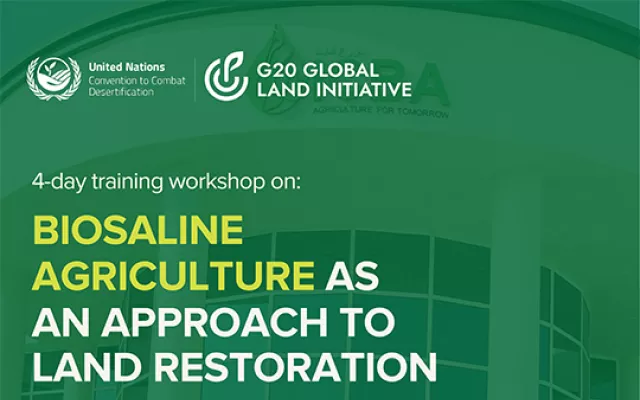Morocco: global forum puts alternative water sources center stage
6 October 2018
More than 200 scientists and practitioners in the water sector have called for stronger collaboration and coordination between all water sector stakeholders, including government entities, private- sector and non-government organizations, at a three-day international conference titled “GLOBEAQUA - Managing Water Scarcity in River Basins: Innovation and Sustainable Development”.
Organized on 4-6 October 2018 in Agadir, Morocco, by the International Center for Biosaline Agriculture (ICBA), the Hassan II Institute of Agronomy and veterinary medicine, and the Mohamed VI Polytechnic University, the conference brought together participants from 30 countries from Europe, North Africa, sub-Saharan Africa, the Middle East and West Asia.
During the conference, participants shared the latest knowledge and innovation experience from the areas most affected by water scarcity. They exchanged European and Southern Mediterranean national strategies on water and discussed the potential of water reuse from municipal wastewater treatment, the use of brackish water, seawater desalination, water efficiency and reuse in agriculture.
In her keynote address, Dr. Ismahane Elouafi, Director General of ICBA, said: “Every drop of water counts! It’s one of the most essential natural resources in the world. Since there’s a growing challenge to grow more food with less water, we will have to explore alternative water resources to meet the current and future food demand. At ICBA, we have been providing innovative solutions to make maximum use of different types of water, which include brackish water, treated wastewater, saline groundwater, seawater and drainage water. In order to achieve food and water security in marginal environments, our scientists use biosaline agriculture practices to increase water use efficiency and crop productivity in the extreme marginal areas.”
For his part, Dr. Mohamed Ait Kadi, President of the General Council of Agricultural Development,
Morocco, said: “The size of today’s water security challenge should not be underestimated. While the scale and complexity of this multidimensional challenge are huge, solutions are within reach.”
Participants stressed the importance of exchanging experiences and lessons especially between the North and the South for better management.
Among other things, the conference recognized biosaline agriculture and the use of non-conventional water resources, along with efficient irrigation technology, as the key solutions to saving more freshwater and producing more food.
Participants also pointed to the introduction of alternative crops such as quinoa in areas suffering from water scarcity and salinity problems as having positive impacts on the livelihoods of farmers.












